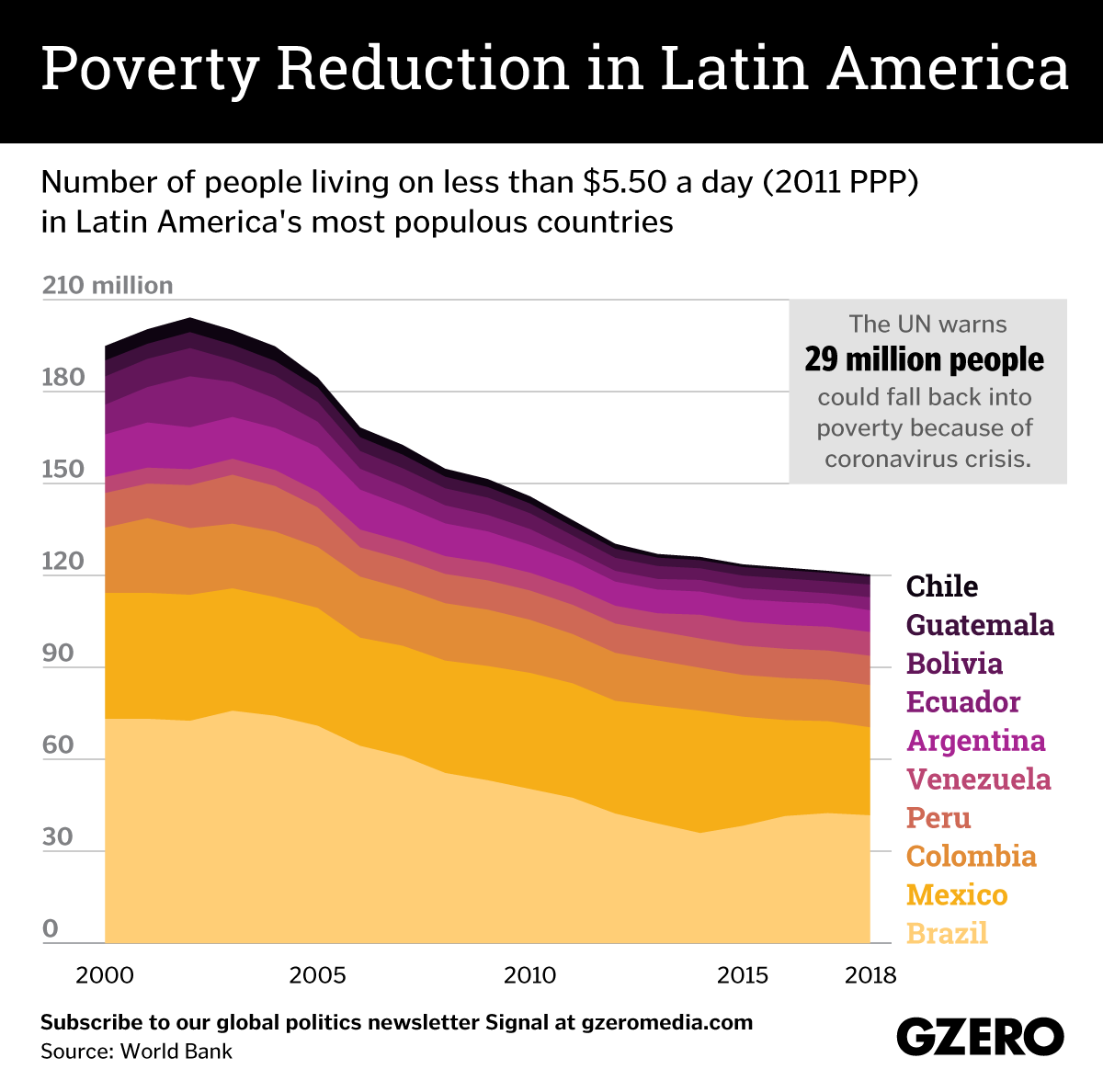April 29, 2020
A UN official warned this week that as many as 29 million people across Latin America and the Caribbean could be plunged into poverty because of the economic pain caused by the coronavirus. Latin America's economy, which is expected to contract 5.2 percent this year, will be hit far harder than any other region, and could take up to a decade to repair. This would undo many of the social and economic gains of the past two decades that have pulled millions out of poverty. Here's a look at the number of impoverished people in Latin America's most populous countries over the past two decades – a glimpse of what's at stake.
More For You
Bad Bunny during the Super Bowl LX halftime show press conference at Moscone Center.
Kirby Lee-Imagn Images
100 million: The number of people expected to watch the Super Bowl halftime performance with Bad Bunny, the Puerto Rican superstar and newly minted Album of the Year winner at the Grammys.
Most Popular
Think you know what's going on around the world? Here's your chance to prove it.
- YouTube
An imminent US airstrike on iran is not only possible, it's probable.
Americans are moving less — and renting more. Cooling migration and rising vacancy rates, especially across the Sunbelt, have flattened rent growth and given renters new leverage. For many lower-income households, that relief is beginning to show up in discretionary spending. Explore what's changing in US housing by subscribing to Bank of America Institute.
© 2025 GZERO Media. All Rights Reserved | A Eurasia Group media company.
